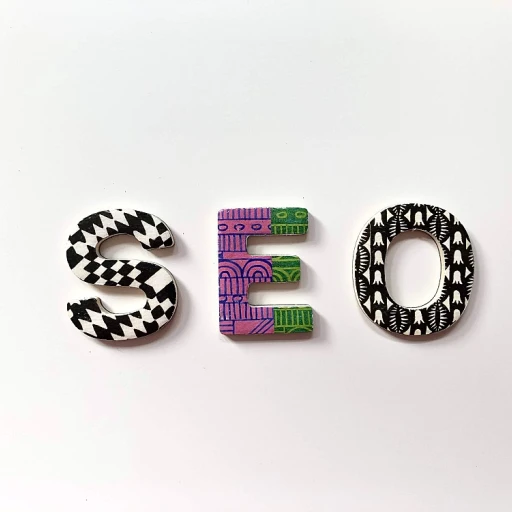
Understanding AI's Role in SEO
How AI Shapes the Future of SEO
Artificial Intelligence has been stirring up excitement, particularly for those vested in SEO. As we meander through its vast potential, AI seems to promise a way to revamp our search strategies. What does this really mean for us? It means saying goodbye to the old methods of guesswork and embracing data-driven decisions. AI has the power to supercharge your SEO strategy, leading to improvements in search engine visibility, website performance, and user experience. Imagine AI-powered tools as the modern-day compass guiding you through the intricate alleys of SEO. Unlike the old days when intuition ruled the roost, these SEO tools now offer precise, real-time data analysis, revealing insights into user behavior and predicting future trends. This not only helps in adjusting strategies promptly but also ensures that your content resonates with the audience and appeases the ever-evolving Google algorithm.Revolution Informed Decisions
AI is changing the way we handle SEO. Before AI made its debut, assessing the effectiveness of keywords, content, and strategies felt like shooting arrows in the dark. Now, with AI-driven analysis, we can see clear patterns and make informed decisions. For instance, AI examines how users interact with your site, identifying the moments they lose interest and helping pin down what actually holds their attention. The future isn't just about regular content creation—it's about intelligent content generation. Natural language processing enables us to craft content that's not only valuable but also aligns perfectly with user expectations. This tweaks user experience, nudges SEO performance up a notch, and lets you enjoy an edge over competitors. Incorporating predictive analytics into your SEO strategies allows website owners to foresee market trends and tailor content accordingly. This foresight in the SEO strategy helps to capture keywords that matter, optimize link building, and predict user intent with remarkable accuracy.Reflecting on AI’s Invaluable Insights
Relying on sheer instinct to optimize SEO is like driving blindfolded in a busy street; AI provides the sight you need. From content creation to keyword optimization, this game-changer allows you to leverage intricate data without endless spreadsheets or sleepless nights. It’s about embracing a fresh perspective and letting AI sharpen the focus on what matters. Discover how the power of AI can redefine your approach to digital marketing by exploring our piece on Mastering SEO Campaigns with AI. Dive into a world where machine learning becomes your best ally in making strategic decisions, optimizing SEO performance, and transforming search engine strategies before the spotlight subtly shifts to unleashing the future of content optimization.AI Tools for Tracking SEO Performance
Fresh Approaches to Tracking SEO Performance
Keeping tabs on SEO performance can feel like trying to chase your own shadow, but artificial intelligence can turn the lights on. Knowing how to track the success of your search engine optimization strategies is like checking your map on a long journey—it's essential. AI tools offer insights that stretch beyond surface-level data. Think pinpointed user behavior analysis and real-time data on your website performance. They're not just turning signals into static reports; they're crafting dynamic insights to guide your next move. Picture this: AI-driven tools providing a full sweep of your SEO campaign's progress. Algorithms are finding patterns in how users interact, optimizing the experience on the fly, almost like being your digital compass.- Voice Search Opportunities: With natural language processing capabilities, AI tools understand user intent better, essential for optimizing content for voice search—an increasing way people search.
- Improved User Experience: By analyzing how users interact with a website, adjustments can be made to keep visitors engaged. It could be changes as subtle as repositioning a CTA button, tweaks that rely heavily on real-time feedback.
- Optimization through AI: Tools like Google's RankBrain use machine learning to understand the best performing content and website structures.
Leveraging AI for Keyword Optimization
AI Tools and Techniques for Optimizing Keywords
In a digital marketing strategy, few things compete with nailing down those keywords. You know, the words or phrases that are the magic keys to unlocking more website traffic, engagement, and conversions. If you’ve ever thought that optimizing keywords is like finding a needle in a haystack, then AI might just be the magnet you need. AI-powered tools have fundamentally changed how marketers identify and prioritize keywords. Algorithms take into account various parameters like user intent, search volume, and competition. They dive into heaps of data to pinpoint which keywords will elevate your content above the rest. Consider AI tools that do the following:- Analyze User Behavior: Tools like Google's AI can provide insights into how users interact with search engines and content, revealing what people are genuinely looking for when they type those words.
- Incorporate Machine Learning: As machine learning algorithms process vast amounts of data, they offer refined suggestions tailored to current trends and search engine requirements.
- Leverage Natural Language Processing (NLP): This helps understand context, intent, and semantics, making keyword recommendations more aligned with what users are actually looking for.
AI in Content Generation and Analysis
The way AI turbocharges keyword optimization doesn't stop at mere selection; it seeps into the very act of creating and analyzing content. AI doesn’t just tell you what keywords to use; it helps figure out how to weave them into stories that captivate. Platforms now exist that utilize AI for content creation, suggesting structures, analyzing sentiment, and even generating drafts. With AI, content is analyzed for engagement, readability, and SEO best practices. It's all about providing a seamless user experience and top-notch website performance.AI and Voice Search Optimization
As voice search gains ground, optimizing for it has become a top agenda for SEO strategies. AI's prowess lies in processing natural spoken language. Tools can now parse through spoken queries and provide insights on user intent, helping you refine your approach in content creation. In voice search, context is often different from typed queries. Instead of keyword stuffing, AI software helps ensure the use of natural, conversational language in content. When Google's algorithm picks up a fluid, conversational tone, your website is more likely to rank higher, driving improved search engine performance. AI carries the torch forward in SEO by bringing insights to real-time applications. From enhancing website audit workflows as shown in AI automating site audits, to predicting shifts in search engine dynamics, it transforms how SEO professionals refine their strategies. By embracing these technologies, companies can sharpen their focus on data-driven optimization strategies, ensuring they remain competitive in a rapidly evolving digital marketing environment. For further reading on unleashing new possibilities with AI-powered SEO tactics, check out this detailed guide on revolutionizing SEO strategies with AI.AI-Driven Content Creation and Analysis
AI in Content Creation: The Game Changer
Artificial intelligence is reshaping how we approach content creation, offering tools that help us not only generate content but also refine it for better SEO performance. With AI, creating content becomes less of a chore and more of an opportunity to connect with your audience. These tools analyze user behavior and search engine trends to ensure that your content is not only relevant but also engaging.
Content Generation with AI: Efficiency Meets Creativity
Imagine having a tool that can whip up a draft in minutes, allowing you to focus on the creative aspects of your writing. AI-powered content generation tools do just that. They use natural language processing to create articles, blog posts, and even product descriptions that are tailored to what users are searching for. This means you can produce high-quality content at a faster pace, keeping your website fresh and up-to-date.
Analyzing Content Performance: Real-Time Insights
Once your content is out there, AI tools can provide real-time analysis of how it's performing. By examining metrics like user engagement, bounce rates, and keyword rankings, these tools offer insights that can help you tweak your content strategy. This continuous feedback loop ensures that your content remains aligned with your SEO goals and user expectations.
Optimizing Content for SEO: The AI Advantage
AI doesn't just stop at creation and analysis; it also plays a crucial role in optimization. By identifying the right keywords and suggesting improvements, AI tools can enhance your content's visibility on search engines like Google. This means more eyes on your content and, ultimately, more traffic to your site.
AI Tools for SEO Strategies: A Helping Hand
Whether it's optimizing keywords or analyzing user behavior, AI tools are an invaluable asset in your digital marketing toolkit. They simplify complex tasks, allowing you to focus on crafting strategies that resonate with your audience. By integrating AI into your SEO efforts, you can stay ahead of the curve and ensure your content is always on point.
Predictive Analytics in SEO with AI
Looking Ahead with AI in SEO
Artificial intelligence is not just a buzzword; it's reshaping how we approach search engine optimization. Predictive analytics is one of the most exciting developments, helping businesses anticipate trends and adjust their strategies proactively. Imagine having a crystal ball that offers insights into future user behavior, search patterns, and keyword trends. That's what AI brings to the table.
Predictive Power: The Game Changer
Predictive analytics leverages machine learning to analyze historical data and forecast future outcomes. This isn't just about guessing; it's about making informed predictions that can significantly boost your SEO performance. For example, AI can help identify which keywords are likely to gain traction, allowing you to optimize your content strategy ahead of time. This proactive approach means you're not just reacting to changes but staying a step ahead.
Real-Time Insights for Better Decisions
AI-driven tools offer real-time insights into how your website is performing. This means you can track user behavior, analyze content engagement, and adjust your SEO strategies on the fly. Real-time data helps you understand what works and what doesn't, so you can fine-tune your approach for better results. This dynamic adjustment is crucial for maintaining a competitive edge in the fast-paced world of digital marketing.
From Data to Action: Making Sense of the Numbers
With AI, the vast amounts of data generated by your website are no longer overwhelming. AI tools can process this data efficiently, providing you with actionable insights. Whether it's identifying new keyword opportunities or optimizing your content for voice search, AI turns data into a powerful tool for improving your SEO strategy. This means less guesswork and more targeted, effective actions.
Challenges and Opportunities
While AI offers incredible opportunities for SEO, it's not without its challenges. Integrating AI into your existing systems can be complex, and there's always the risk of relying too heavily on automated processes. However, by combining AI with human expertise, you can create a balanced approach that maximizes the benefits of both. As AI continues to evolve, staying informed and adaptable will be key to leveraging its full potential in SEO.
Challenges and Future of AI in SEO
Challenges and The Future: AI Impact on SEO
Artificial intelligence is changing the game for SEO strategies, but it's not all smooth sailing. One thing to keep in mind is the intense amount of data AI requires for accurate analysis. While AI tools provide impressive insights, they cannot function at their best without a treasure trove of data. Google’s ever-changing algorithms and user behavior patterns make it tough for AI to continuously keep up. Machine learning, a key player in AI, is also limited by the quality and quantity of data. Inappropriate data or insufficient inputs can result in inaccurate predictions, potentially damaging SEO performance rather than enhancing it. Businesses must commit resources to obtain high-quality data and develop optimized datasets to maximize the capabilities of AI tools.Privacy Concerns and Ethical Dilemmas
The use of AI in SEO raises concerns over privacy and data protection. Collecting massive amounts of data for analysis can lead to unintended privacy infringements. There is always the challenge of balancing the fine line between gathering useful information and maintaining user trust. Content generation through AI offers the chance to produce large volumes of articles, blog posts, and other digital content at scale. But, automated content can lack the nuance and creativity of human-writing, posing a risk to originality and authenticity. Striking the right balance between automation and human input is important for creating engaging content that maintains user interest and trust.The Bright Side and Future Prospects
Despite these hurdles, the future looks promising for AI in SEO. As technology advances, AI tools are becoming ever more sophisticated, offering even greater potential to optimize SEO strategies effectively. With continued development in natural language processing and machine learning, AI is expected to become more intuitive, helping marketers create refined SEO content and strategies. AI’s predictive capabilities can enable a more proactive SEO approach instead of the reactive ways of doing things. Understanding trends before they occur can help tailor marketing initiatives to those changes, providing a competitive edge in a saturated digital market. The constant evolution of AI technology promises a future where businesses can gain real-time insights into their SEO performance, adjusting strategies on the fly to keep up with changes in search engine algorithms, user behavior, and market trends. For SEO enthusiasts and professionals, staying updated on AI developments in search engine tactics is just as important as knowing the best content generation practices. Keeping abreast of how AI can help will be crucial to succeed in the competitive search engine landscape as marketing adapts to technological advancements. References:- https://www.lean-seo.com/blog/enhancing-seo-strategies-with-ai-powered-forecasting
- "The Role of AI in Revolutionizing SEO" from Digital Marketing Magazine
- "AI-Driven SEO: The Challenges and Opportunities" by Search Engine Journal













